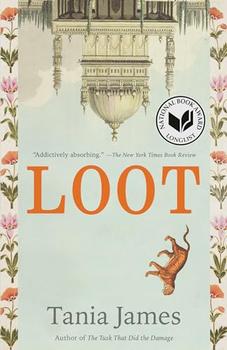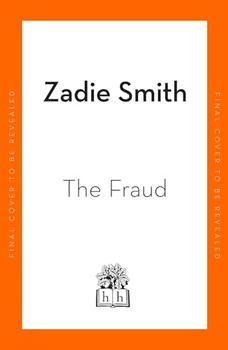Summary | Excerpt | Reviews | Beyond the book | Read-Alikes | Genres & Themes | Author Bio

A Novel
by David DiopThe hotly anticipated new novel by David Diop, winner of the International Booker Prize.
Paris, 1806. The renowned botanist Michel Adanson lies on his deathbed, the masterwork to which he dedicated his life still incomplete. As he expires, the last word to escape his lips is a woman's name: Maram.
The key to this mysterious woman's identity is Adanson's unpublished memoir of the years he spent in Senegal, concealed in a secret compartment in a chest of drawers. Therein lies a story as fantastical as it is tragic: Maram, it turns out, is none other than the fabled revenant. A young woman of noble birth from the kingdom of Waalo, Maram was sold into slavery but managed to escape from the Island of Gorée—a major embarkation point of the transatlantic slave trade—to a small village hidden in the forest. While on a research expedition in West Africa as a young man, Adanson hears the story of the revenant and becomes obsessed with finding her. Accompanied by his guide, he ventures deep into the Senegalese bush on a journey that reveals not only the savagery of the French colonial occupation but also the unlikely transports of the human heart.
Written with sensitivity and narrative flair, David Diop's Beyond the Door of No Return is a love story like few others. Drawing on the richness and lyricism of Senegal's oral traditions, Diop has constructed a historical epic of the highest order.
Beyond the Door of No Return will resonate with readers drawn to either vivid settings or beautiful language. The book's prose is stunningly written and translated, with descriptions well worth savoring. This is a first-rate historical novel, richly conveying both the wider scope of the 18th-century colonization of Senegal and the individuals struggling to survive and find meaning within it...continued
Full Review
 (657 words)
(657 words)
(Reviewed by Katharine Blatchford).
 In David Diop's novel Beyond the Door of No Return, French botanist Michel Adanson journeys across 18th-century Senegal to discover the fate of a woman who was kidnapped. At the time of the story, much of the area was either directly or indirectly under the control of the French East India Company, a less-known competitor to the United East India Company.
In David Diop's novel Beyond the Door of No Return, French botanist Michel Adanson journeys across 18th-century Senegal to discover the fate of a woman who was kidnapped. At the time of the story, much of the area was either directly or indirectly under the control of the French East India Company, a less-known competitor to the United East India Company.
Known in French as the Compagnie Française des Indes Orientales, the first French East India Company was founded in 1664 by Jean Baptiste Colbert with the backing of King Louis XIV as part of a wider plan to strengthen the French economy. The company was given several potentially lucrative grants, including a 50-year monopoly on trade east of the Cape of Good Hope. It ...

If you liked Beyond the Door of No Return, try these:

by Tania James
Published 2024
A spellbinding historical novel set in the eighteenth century: a hero's quest, a love story, the story of a young artist coming of age, and an exuberant heist adventure that traces the bloody legacy of colonialism across two continents and fifty years. A wildly inventive, irresistible feat of storytelling from a writer at the height of her powers.

by Zadie Smith
Published 2024
From acclaimed and bestselling novelist Zadie Smith, a kaleidoscopic work of historical fiction set against the legal trial that divided Victorian England, about who gets to tell their story—and who gets to be believed